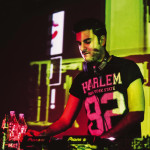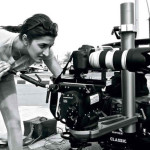Three Aces
On an emotion-charged Sunday evening, I have emerged from a performance of Tuesdays with Morrie at the NCPA’s Experimental Theatre. This dramatic rendition of the book, a production by Akarsh Khurana, with his younger brother Adhaar Khurana and their real-life father Dr Akash Khurana in the lead roles, has left none in the audience unmoved.
The play – an adaptation of the work Tuesdays with Morrie, a memoir by American writer Mitch Albom, traces the time spent by newspaper sports columnist Albom with his 78-year-old sociology professor who is dying from amyotrophic lateral sclerosis (ALS). The connection between the two after a lapse of 16 years happens when Albom sees Schwartz on a TV show Nightline and calls him. This conversation results in Albom commuting to meet his old professor every Tuesday and a large part of the work is based on those 14 Tuesdays. Their interactions are enhanced by Schwartz’s lectures and life experiences – they end when he succumbs to the illness. The witnessing of the play is an extremely cathartic experience for me, which subsequently prompts me to interact with the three men – the triple As – who have over the years, with their company, Akvarious, breathed life into theatre and drawn people back into darkened halls.
Cut to the Godrej Dance Theatre at the NCPA a couple of weeks later. The Khuranas have arrived well on time for a ‘production’ to be staged by Verve. I spot Akarsh in the foyer of the auditorium, Adhaar is walking in the verdant garden outside and Akash is in the green room. The father emerges in an instant – and the trio, divided by age, but united by their passion for theatre in its diverse forms, plunges into the act.
With the Verve team outlining the broad guidelines of the shoot, it does not take the Khuranas much effort to pick up the cues in a venue that is almost like a second home to them. From playing puppets to occupying front row seats in the audience, they slip into their roles for the day with ease. Time passes swiftly as I am absorbed by their various moods and am caught up in their easy camaraderie. Akash leads the way with his swift changes of poses and pirouettes; Akarsh, seemingly the more serious, enters into the flow of fun and Adhaar is the quintessential rising star of the block. Shots taken, it takes me no effort to initiate a dialogue with the three Aces. Words flow with felicity. Excerpts from our chatathon, which I kick-start with my last dramatic vision of them – Tuesdays with Morrie.
“IT WAS AN EMOTIONAL JOURNEY.”
Akarsh: I hadn’t read the book when I decided to do the play. When NCPA wanted to do a production with us, I thought it would be a good fit as it would connect well with the South Bombay audience who would have mostly read the book. My mother had read it and I was looking for her to direct something. I assumed Dad would do the part of Morrie. I had not locked on Adhaar for Mitch. It was at Mom’s insistence that I took him on. She felt it was critical that he worked with dad – perhaps one last attempt at disciplining him. And with this casting you didn’t have to work on an equation, they already had one. But we hadn’t actually thought through the ramifications. It was an intensely emotional journey. I can’t watch the last scene, while I’m lighting it. I do my last light change and I move away. These are people from my life out there having conversations, which God forbid, one day they might really have. For me, it is really disturbing. I don’t know how they do it.
Adhaar: It began with the idea of sharing stage space with Dad. I knew that it would be a great learning experience for me. I’m on stage all the time for the duration of the play and it just kind of flows. But when you think of the last few moments it is surreal. I’m not a very emotional person and it was a challenge to get there. It worked interestingly for me because it was so comfortable to be with Dad. I enjoyed the camaraderie even though we were all mainly talking about death.
Akash: At first it was just another job that you take up as a challenge. Then, like Waiting for Godot and Blackbird, you only realise what’s happened at the end of it. It worked because, production-wise, a lot of detailing has gone into it backstage. Having said that, I am not being immodest, but I just delivered. My inherent skill as a writer helped me re-adapt and position the text. The graph has worked better than the original. The play is so identifiable that it becomes a far more two-way process than a normal production.
“AKVARIOUS IS OUR FAMILY.”
Akash: Akarsh has done far more work in theatre than I have. But even considering the span spent, he is extremely low-key. And very few people know my work here, but they are the ones who matter.
Adhaar: Akvarious is like our family. Akarsh is at the head; he’s running the company. The name actually has a lot of significance. It’s AK and various. Dad is the original AK and we’re all the various.
Akarsh: There is a genuine problem with theatre in that it doesn’t get the coverage it deserves – even though these days, you open a paper and you have six or seven shows happening a day, including the regional plays, which is a great sign. People who do a fair amount of theatre along with film tend to get a certain more prominence because they are visible in that medium. But, I have no complaints in terms of the coverage we’ve got in the last couple of years.
Adhaar: The brand’s been built up because of Akarsh. He writes, he directs and produces. Since I started directing, with plays like Some Times and Internal Affairs, many people think I (the director) am him – there is a lot of confusion on who the actual guy is.
“IT’S GREAT TO HAVE DAD AND AKARSH AROUND.”
Adhaar: I’ve directly, in the field of theatre, interacted much more with Akarsh because a lot of my work is with him. Obviously dad has always been around – it’s great to have both of them. A lot of people can see it as a disadvantage but for me it’s an advantage, because they both have different outlooks and points of view. Both are probably right but the approach is different. While I was growing up, I wasn’t disciplined – I was let loose and that was one of the best learning experiences.
Akarsh: If you are talking about discipline, there are three failures (our mother included) at the table.
Akash: Discipline? What discipline?
Adhaar: There was none and that is the best thing that happened to me in terms of a relationship with both Dad and Akarsh . Now that I am working with them in the theatre field, there are no barriers. Our professional life and personal life have almost merged. This could be a problem, but it is not, since they’re both buddies.
“THEY’RE CHIPS OFF THE OLD BLOCK.”
Akash: While they were growing up, I had more time for Adhaar – when Akarsh was small I was very busy with my projects. The eight-year difference is a long time. But they are both chips off the old block. There is a lot of me in Akarsh and I feel it belongs to a zone that is a part of my past. He’s got my practical side. I was like him. And with Adhaar, it is a case of the younger sibling. In both Akarsh and Adhaar, the essence is pretty much similar but the DNA sometimes gets different in different environments and circumstances. As far as theatre is concerned, time is still on Adhaar’s side. Akarsh was more focussed, so he became what he did in a hurry, relatively. What I took a lifetime for, Akarsh perhaps did in a decade.
“MY GRAPH HAS BEEN A REFERENCE FOR THEM.”
Akash: The acid test for most parents is to really show their children a mirror to themselves. My graph has been pretty much, unconsciously or subconsciously, a reference point for both Akarsh and Adhaar. I had Akarsh, we were shifting houses like crazy in the city and one day I just decided to chuck my job, with no alternative because anything that I could foresee, lacked the spirit of adventure. In that sense I was a maverick. And the only saving grace was that I did everything I was qualified for. Some people shift gears without having the wherewithal to do so. Akarsh too did the same. He was a Science student, moved into the media, then did marketing and films, and now he has stepped into the world of theatre. When people ask us how we manage to do theatre full time, my reply is, theatre does not fully sustain us. We are doing other things as well. Like films. But my children have followed their individual paths. I have let them test the waters. If you are good at what you are doing and if you are passionate about what you do, you find your path.
“I WAS NERVOUS ABOUT DIRECTING DAD.”
Akarsh: When Dad is directing a play that Akvarious is producing, I don’t need to be around to monitor him. He does everything that needs to be done. Interestingly, the first time I directed him, it was a big task for me because I was directing him and Shernaz Patel in Blackbird. On the first day, I was a little nervous about the fact that they’re stalwarts. But both of them are so fantastic and at no point did they make me feel that my opinion would not count. I’ve had the privilege of working with Dad, Shernaz and Benjamin Gilani and they come totally ready. They have done the kind of homework before the first rehearsal that young actors haven’t done even when the play opens. They are ready way before time, with their costumes laid out, while others might still be coming in and dealing with hangovers.
Akash: The boys look up to me. Whether it’s unconscious or subconscious, they emulate me a lot. So, they imbibe my strengths and are tolerant of the bad things. I think what’s been good is that it didn’t take too much goading for them to absorb what one would think is a legacy to be absorbed. Most assets get transferred as legacies after you’re gone. To see it in my lifetime, that’s special!
“WE HAVE AN INTERESTING WORKING RELATIONSHIP.”
Akarsh: We have an interesting working relationship. We did a play, Rafta Rafta, in which Adhaar was actually playing my son. Since he is my brother, and because I was failing at being a disciplinarian at that point of time, he was the only actor I used to lose my cool at – till I actually got told, not only by him, but by other cast members that, I was picking on him. I had to step back and say that I cannot bring my personal equation here and make things uncomfortable. So I have got to at some point, try and not be the elder brother and just be director and actually approach it like I would with any actor – for one is probably more patient with other actors than you are with your own kin.
Adhaar: When I started, it was a way to pass time. So I had a frivolous attitude where I acted my role – since I am the director’s brother, the producer’s brother. Now, like Akarsh says I have understood my responsibility; I’ve taken on more work and am thriving on it.
“MOST THINGS ARE COLLABORATIVE.”
Akash: I might not be always centre stage but most things are collaborative. My spirit is there and these two are active in most things.
Akarsh: I’ve just written a television film in which Adhaar’s playing the villain and Dad’s playing a khadoos father. Adhaar’s just a bit of a jerk in the film. He got it quite naturally.
Adhaar: It’s just that I’m well cast…. And, hopefully, Akarsh and I will co-direct a play soon, given the time.
Related posts from Verve:
Verve Trending
Sorry. No data so far.
us on Facebook to stay updated with the latest trends





